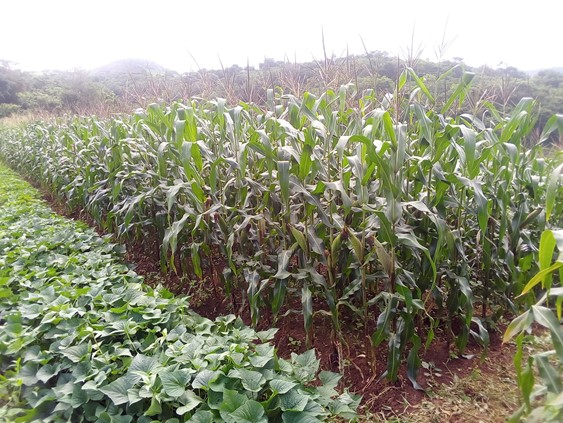Success Story of Chitheka: Enthusiasm runs high in this remote community
16 March 2021
The Background
Chitheka Extension Planning Area (EPA) is found in Nkhata Bay District on the windward side of Viphya Plateaus. The rainy season runs from late November to May. Most farmers are using hill slopes for cultivation and Chitheka is experiencing a very high level of soil erosion at about 36 tons of soil lost per hectare per year. This is because the hill slopes are the subject of wanton deforestation and poor cultivation methods that do not protect the soil. The average maize yield for the recent past at the EPA is 0.97 tons per hectare against the national average of 2.7 tons per ha.
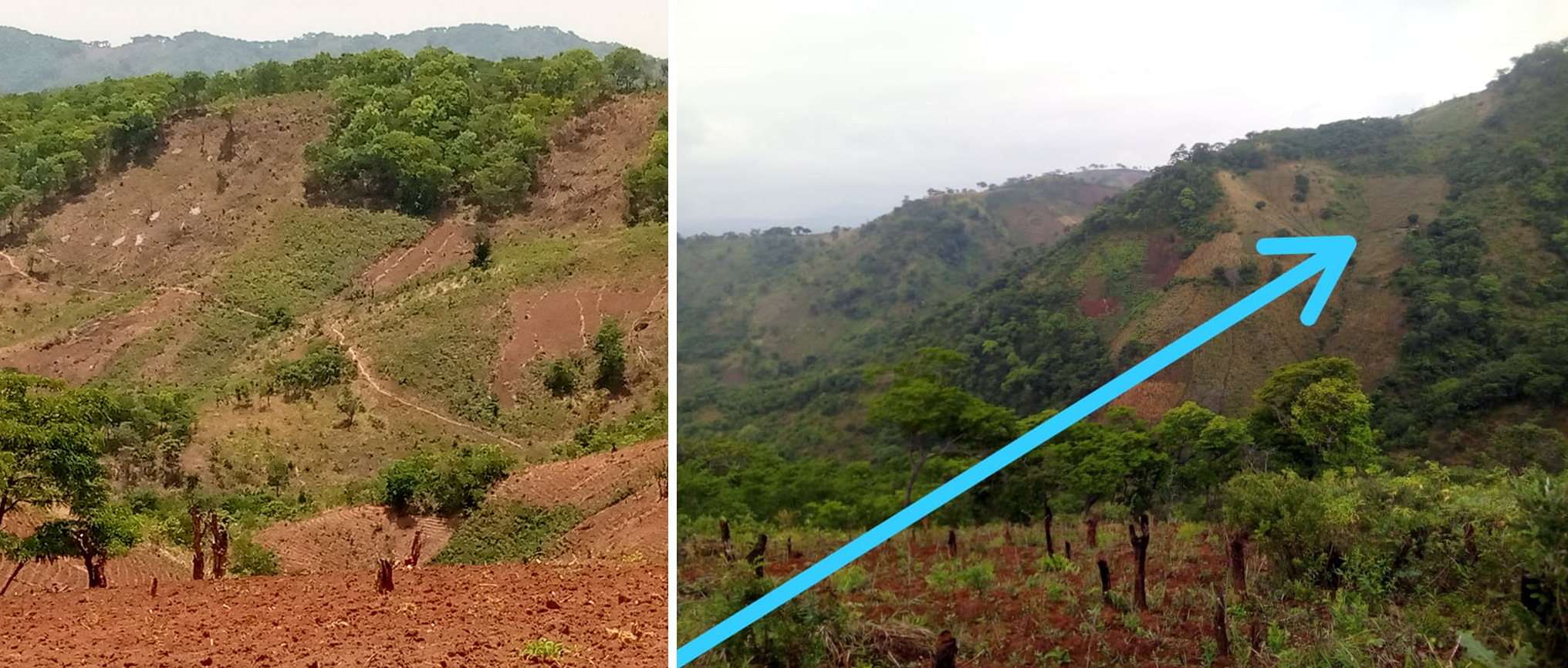
Poor Yields
In most parts of Chitheka, farmers carry their merchandise on the head due to bad terrain and poor roads which are not conducive to any other mode of transportation. It is difficult to get any agricultural inputs to many places in the area when the rains start because the roads are impassable. Farmers, therefore, have lived with shifting cultivation by cutting and burning down forests in search of virgin land. However, many farmers now cannot find any virgin lands, so they continue to cultivate their poor degraded lands with falling yields and no future leading to an impoverishment spiral for the rural farmers.
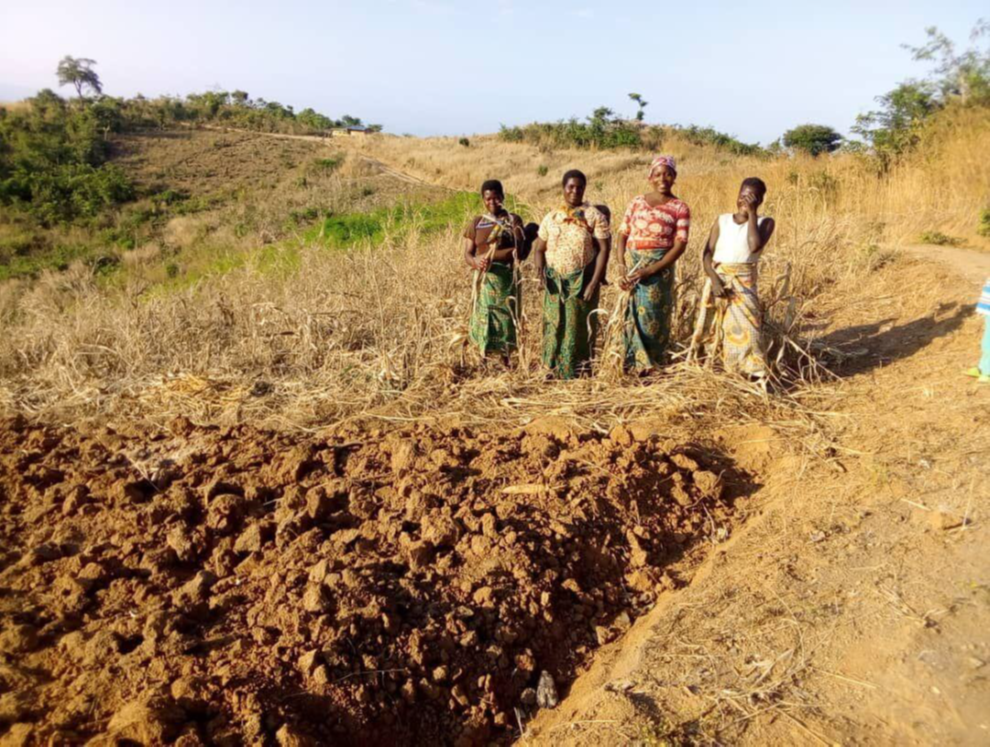
Tiyeni Interventions Improve Yield through Deep Bed farming
Farmers in Chitheka approached Tiyeni and from April 2019 Deep Bed farming was introduced through an initial showcasing of DBF, selecting lead farmers and training them. Lead farmers then started teaching Deep Bed farming to their fellow farmers while Tiyeni staff conducted regular monitoring activities to advise and perfect the art of DBF.
Farmers were quick to learn all the required practices in DBF but Tiyeni staff noted that farmers were hesitant in adopting manure making. By Tiyeni staff follow-ups farmers started making adequate manure.
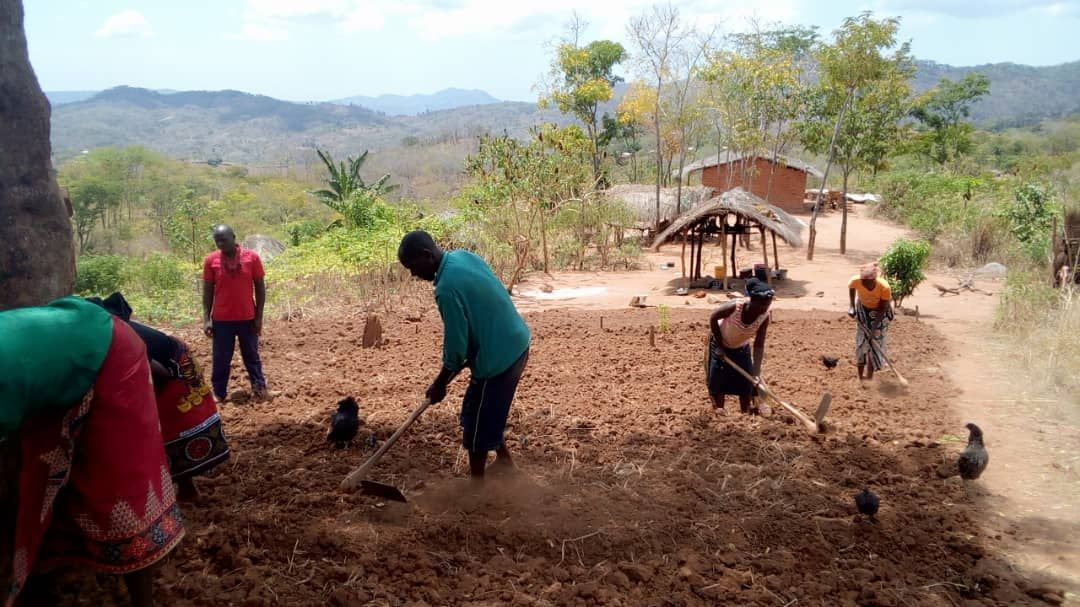
When the rains started falling and the farmers saw their maize and legume crops growing in Deep Beds, they were amazed. Tilling had broken the hard pan and all the rainwater was percolating into the soil without runoff or erosion. The maize crop was germinating very well and growing very healthily in contrast to their lands under conventional ridges.
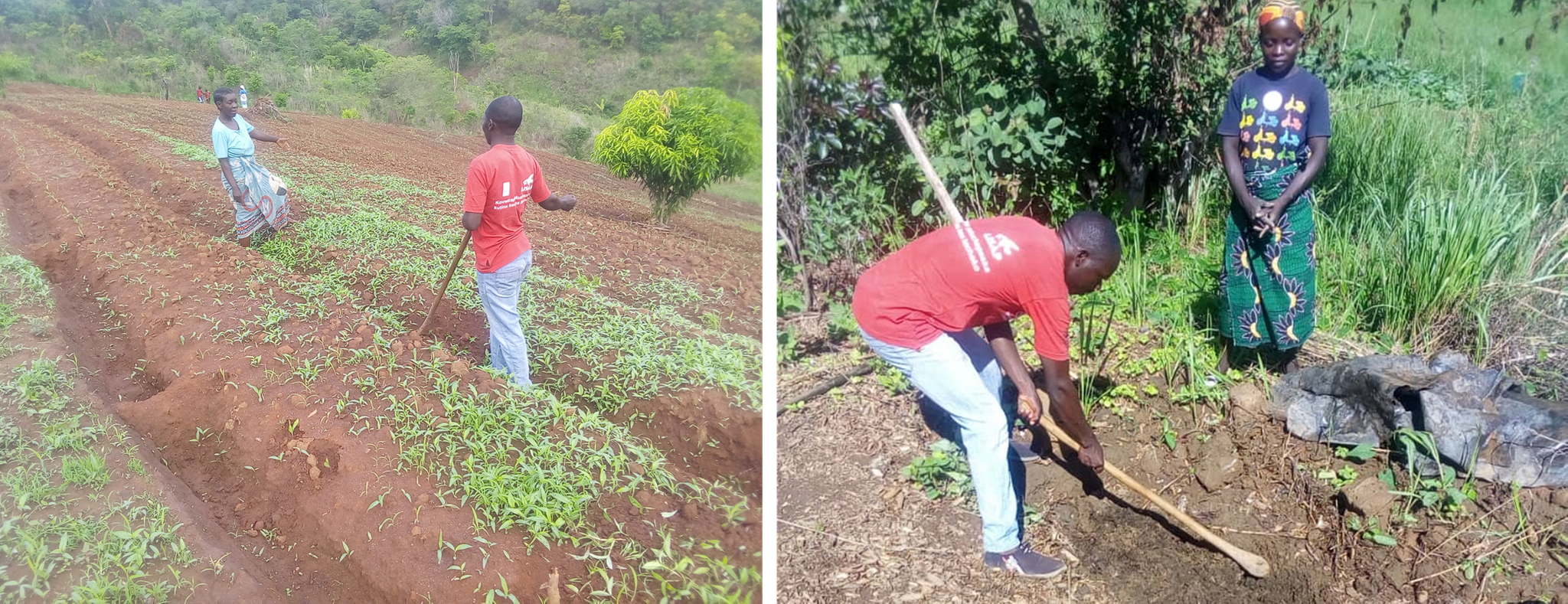
All farmers that tried DBF last year (2020) said they will increase land under DBF in 2021, some from less than 0.1ha to 0.4ha or more. All their neighbouring farmers praised DBF for the impressive crops.
The story of Rachel Manda
Rachel Manda said she had given up on her field. She was contemplating looking for new land to cultivate. But there was nowhere that she could go. She was bound to ‘her unproductive land’ due to land pressure. But when she heard about DBF, she was determined to try it. When she was breaking the hard pan, other farmers started laughing at her for tilling and making beds in the upland, rather than beds for vegetables in the valley bottoms. Though initially asked if she had gone mad, she is now the talk of the village because people have seen the huge crop yields she got from DBF! She used to get less than 100kg of maize per year from 0.4ha but from 0.1ha of DBF she got more than 750kg.
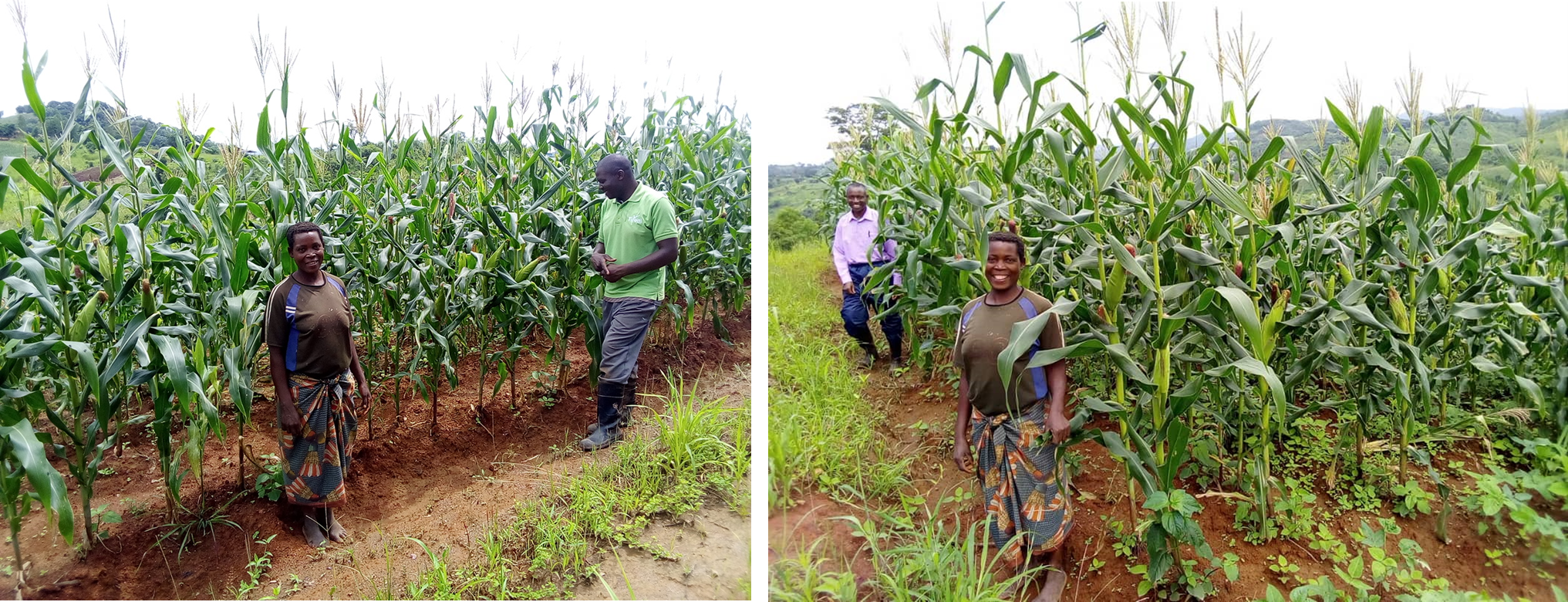
The story of Maida Chirwa: A seasoned demonstration and lead farmer
Maida Chirwa is a lead farmer whose field is strategically located along the main road. She has been chosen to demonstrate several technologies over the years on her field. When she was chosen to demonstrate DBF on her field, she thought it will be a normal crop as usual. She followed all DBF practices with keen interest. She prepared a land of 0.2ha for DBF and grew maize over this land. The maize germinated very well and the vegetative growth was impressive from the time the maize germinated up to maturity. Maida confessed that she had never had a crop as good as this. She said DBF was the best technology against all the technologies that she has tried on her land. She has been a demonstration farmer for more than 10 years and she said DBF is the best.
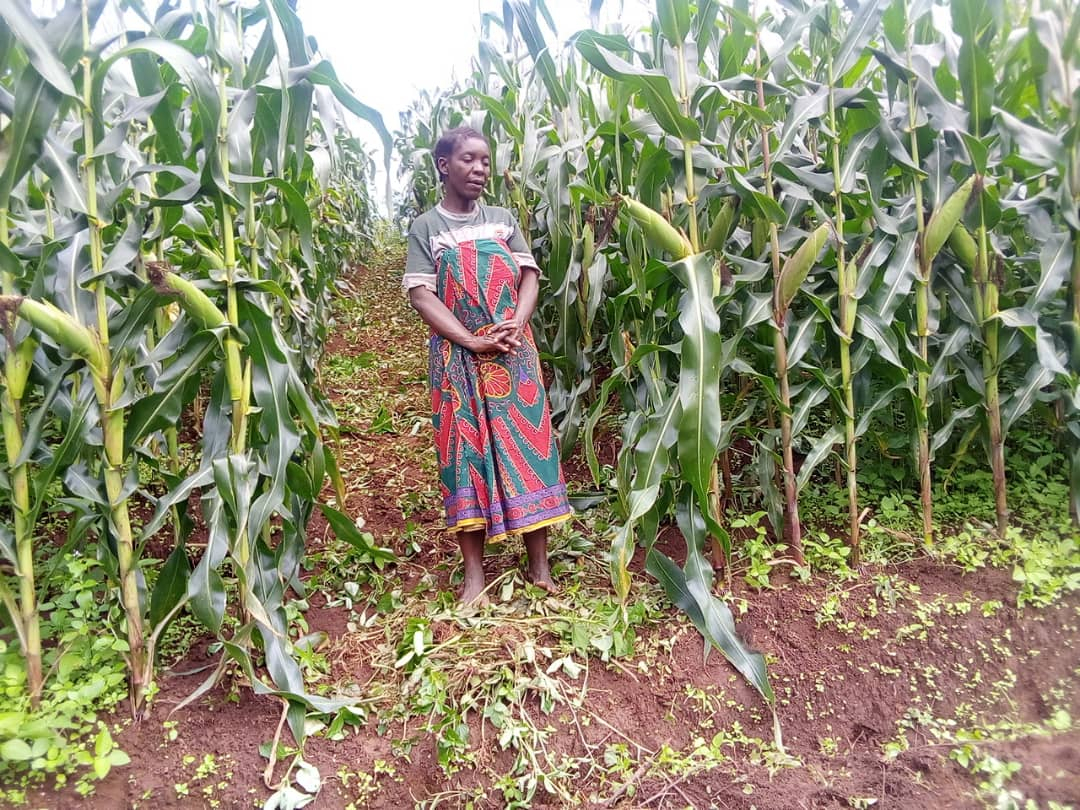
She said all passers-by stop by to appreciate the maize. She said what impresses her most is that technology allows every single plant to express its characteristics full. They grow tall, healthy stems and produce well-formed cobs. Her fields were used to demonstrate three varieties of maize and each variety stand had uniform maize in height, colour and cob size in their respective stands. She said she had never seen a crop like this before. She got 2,250kg compared to the adjacent conventional ridges plot of equal size of 800kg. In one season she became a maize surplus household.
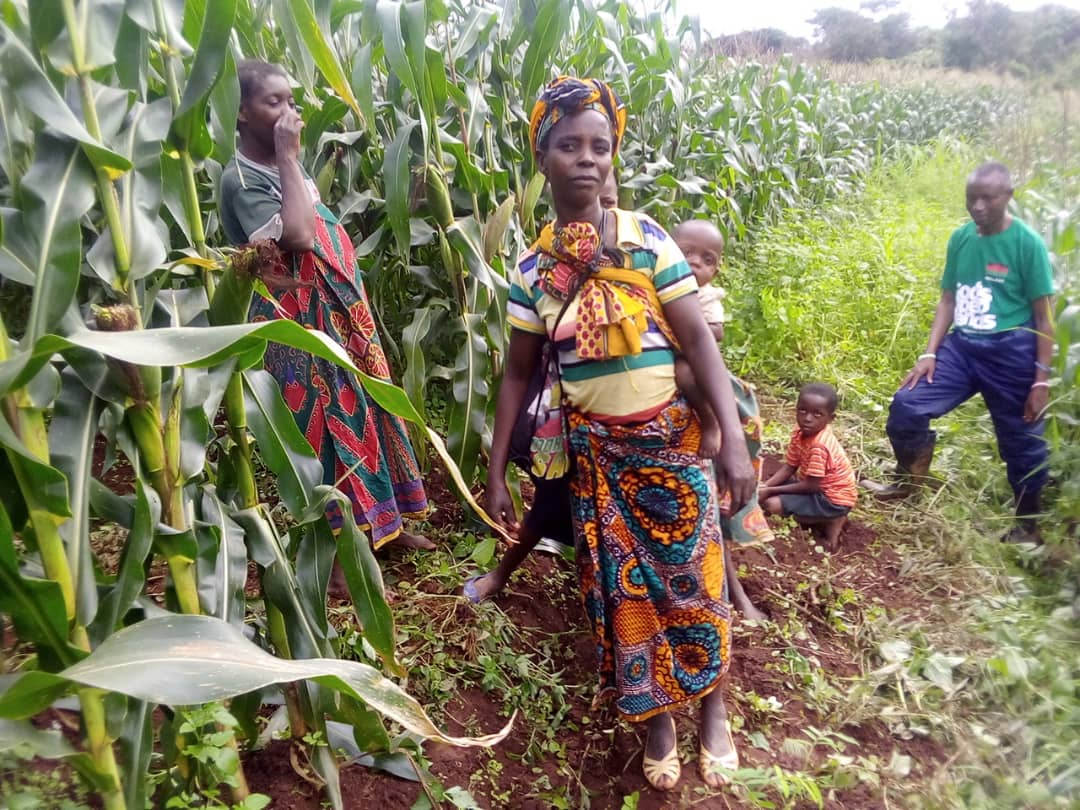
Expansion of Deep Bed farming in Chitheka
The farmers in Chitheka are very impressed with DBF, to the extent that in 2020, over three times the number in 2019 registered to join DBF farming. Those farmers that tried DBF in 2019 expanded their DBF field from less than 0.1 ha to about 0.4ha. There is high demand for training in DBF for farmers in Chitheka as farmers have renewed their hope in the land that they were in the process of abandoning due to infertility. Enthusiasm runs high in this remote community.
